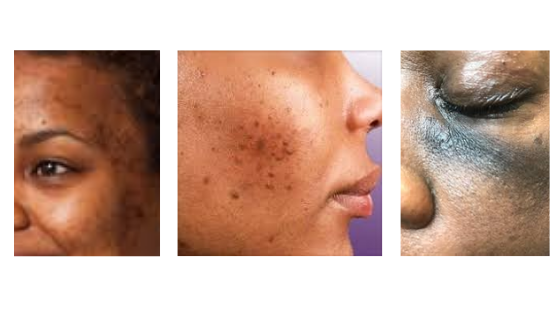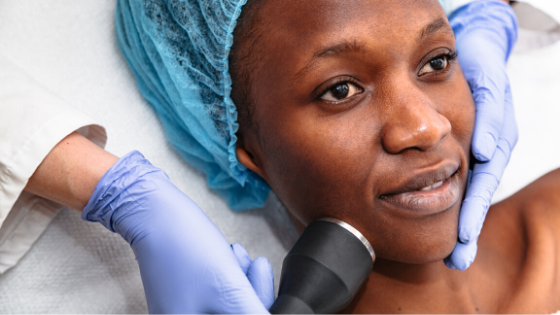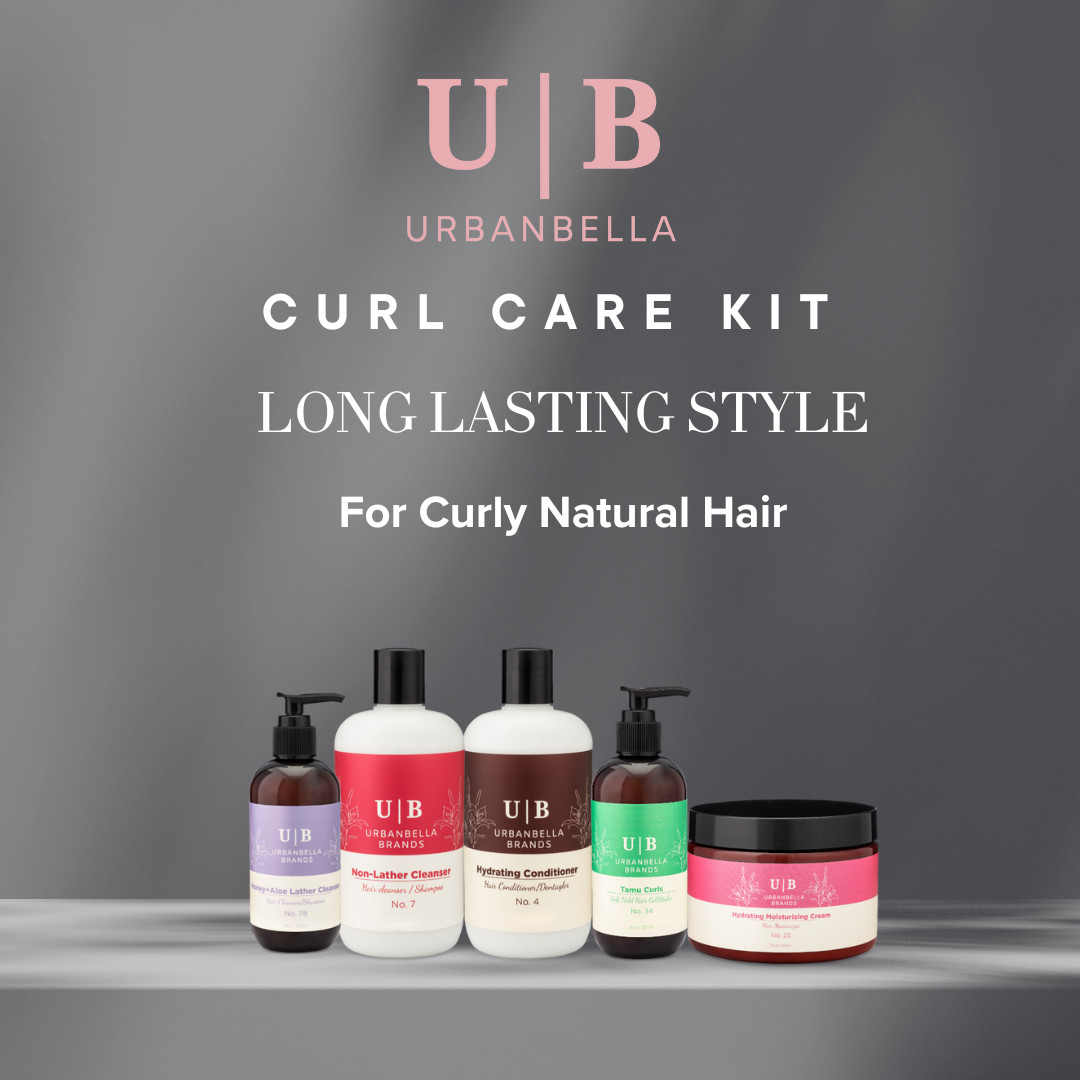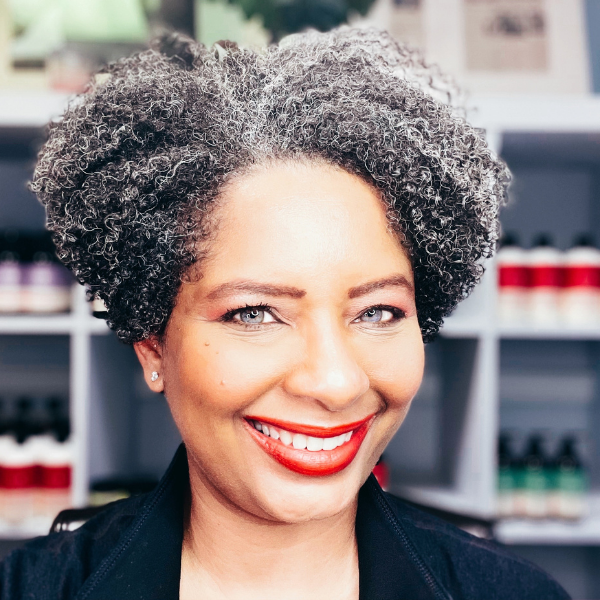Hyperpigmentation. It’s pretty much a reality of life when you’ve got dark skin, and is the number one skin concern among us black women, ranking even before wrinkles and aging.
It can strike as early as our teenage years, rearing its ugly head as we navigate not only the upsetting breakouts that go hand-in-hand with coming of age… But then, even years later- it continues to remind us of the struggles of breakouts past, as dark scars remain long after the spots have cleared up. It can hang out in deep circles under our eyes, making us look like we're forever in need of a good night's sleep... Or scatter itself across our cheeks and chest, foiling even the most flawless makeup application with its patchy color variations we attempt to cover up without much avail. It can bring back memories of past injuries every time we catch a glimpse of an old scar, leaving dark, stubborn reminders of cuts and scrapes from years long ago. So what do we do about hyperpigmentation? First step is understanding what causes it, and how to minimize its effects in the future.
What is Hyperpigmentation?
Hyperpigmentation is basically the overproduction of melanin on the skin. Dark skin is more likely to develop pigmentation problems, as our skin has more melanosomes (or melanin transporters) that can pose some challenges when it comes to maintaining an even skin tone. When our melanin response is triggered by sun exposure or trauma to the skin's surface, the flare up of melanin rushing to the surface takes a long time to fade.
Excess melanin is a result of our skin responding to and healing inflammation. When our skin repairs itself, healing the inflammation caused by acne and wounds, it can overcompensate during its repairing process... Triggering so much melanin production it actually leaves scars. This manifests itself in patchy, uneven skin and dark spots that are extremely difficult to fade.
This overproduction of melanin can be inherited, a result of hormone imbalance, medical conditions, some antibiotics, or even just because of your age... But still the main reason for hyperpigmentation is excessive sun exposure. Despite the fact that our dark skin is better protected against sun damage than lighter-skinned women, being out in the sun still ramps our pigment-producing cells up into high gear to protect itself skin from the damaging effects of UV rays. In turn, exaggerating our melanin production, leading to hyperpigmentation instead of sunburn.
Dealing With Existing Dark Spots?

So, what now? If you've got existing hyperpigmentation that's troubling you and you haven't had much success with home remedies, you can consult with a dermatologist about potential high-tech treatments. They'll be able to assess your skin concerns and advise whether a treatment such as microdermabrasion will be the right fit for your skin issues. Just be sure to confirm with them that any of the more aggressive treatments you're considering such as chemical peels or laser treatments won't be causing further trauma to the skin, as these can have a compounding effect, creating more scar tissue and therefore more dark spots.
So, What's The Plan Moving Forward?

The next course of action is to stop future hyperpigmentation in its tracks. We can prevent further hyperpigmentation by taking some steps to avoid that melanin overproduction, and give our skin some TLC to make sure new areas of hyperpigmentation won't be springing up in the future.
-
Be Sun Smart: Limit your exposure to UV rays to cut down on your skin's triggering of its melanin response, bringing unwanted darkness to the surface of scars. Even though we have beautiful dark skin that doesn't burn easily, it's still crucial to cover up and wear sunscreen to avoid a melanin response.
-
Try Prescription Topical Treatments for Stubborn Skin Discoloration: A dermatologist might prescribe a cream containing hydroquinone to slow the production of pigment in your skin. Effective at eliminating hyperpigmentation by working on a cellular level to prevent overproduction of melanin, this product is the gold standard among dermatologists as far as topical treatments go. Always use hydroquinone in prescription strength under the care of a doctor, as treatment should be closely monitored to avoid skin irritation, sun sensitivity and bleaching of areas of the skin if used incorrectly.
-
Keep Your Hands Off Bumps and Bites: Resist the urge to pick at pimples, blackheads, bug bites and scabs, as scratching and picking at a spot will only increase the inflammation that's responsible for skin discoloration. Letting spots heal naturally will be easier when you keep in mind the knowledge that if you mess with your skin and irritate it now, it'll look even worse later on as dark pigmentation can move deeper into the skin over time, leaving darker spots in their wake.
- Boost Your Skin's Cell Turnover With Moisturizers: Even though many women who suffer from pigmentation problems have oily skin that's prone to breakouts, it doesn't mean you should be skipping a moisturizer. Keeping the skin healthy overall will reduce your chance of getting blemishes, and in turn reduce your risk of getting hyperpigmentation in those spots. Go for a moisturizer that's not too heavy and contains some hyaluronic or salicylic acid to get the moisture you need without clogging pores.
----------

Combatting hyperpigmentation is to play the long game, so be patient in your efforts. Topical treatments can take some time to show results, and dermatological treatments may require a few sessions, but keep your eye on the prize and know that you're not alone. Taking some precautions to prevent further damage to your skin will play an integral part in staving off hyperpigmentation in the future, so we hope that you'll join us in taking the steps toward even, smooth skin tone and enjoying healthier skin overall in the process!
~Keneesha xx
P.S. While you're keeping your skin in optimal condition with a light & nourishing moisturizer, don't forget to show your hair some love too! Our Urbanbella #97 Sunflower & Shea Hair Milk packs a punch without weighing your hair down. It'll leave your hair shiny and moisturized, and redefines day-old curls. Here's to perfect skin and hair hydration!





